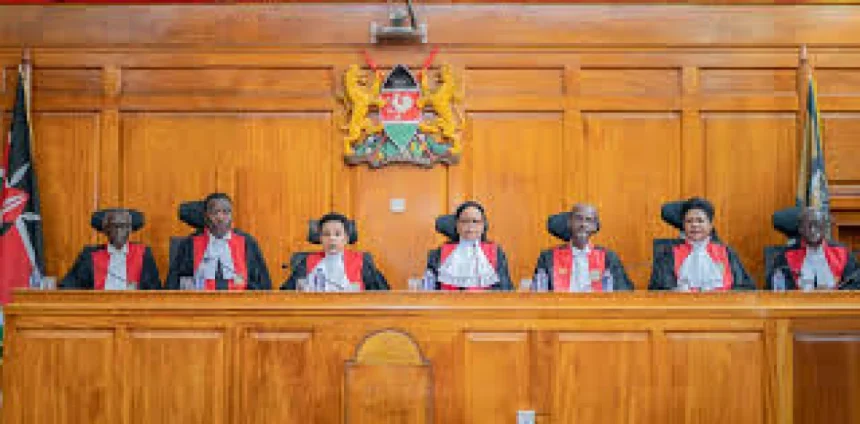FIDA Kenya has filed a petition at the Milimani High Court against the Judicial Service Commission (JSC), challenging the legality and constitutionality of petitions filed seeking the removal of Supreme Court Judges.
FIDA argues that the process initiated by the JSC is unconstitutional, unlawful, and procedurally flawed warning that it could result in the simultaneous removal of more than two, or potentially all seven, Judges of the Supreme Court of Kenya.
The organization contends that allowing the process to proceed would paralyze the operations of the Supreme Court, undermine the rule of law, and violate key constitutional principles including judicial independence, the right to fair administrative action,access to justice, and the right to a fair hearing.
According to court filings, “Should the 1st Respondent’s process result in the simultaneous removal of all Supreme Court Judges, it would create an unprecedented legal and constitutional vacuum.
The Supreme Court would be rendered incapable of performing its essential constitutional functions such as interpreting the Constitution, resolving disputes of national importance, and delivering final adjudication on constitutional and legal issues.”
FIDA further argues that there is an imminent risk of a prolonged judicial crisis arising from the potential indefinite suspension of the Supreme Court.
This would leave significant constitutional and legal questions unresolved, effectively denying the public access to justice and depriving both individuals and institutions of the right to a fair hearing and final determination of legal disputes.
In addition to rendering the Supreme Court inoperative, FIDA states that the JSC’s actions are likely to trigger a chain of constitutional crises. The petitioners warn that the move could erode public confidence in the judiciary, weaken judicial independence, and create perceptions of external interference — all of which would gravely undermine Kenya’s democratic governance.
“It would also prevent the resolution of critical legal and constitutional issues, leave matters of public concern unresolved, and create legal uncertainty for citizens, businesses, and state institutions,” the petition adds.
FIDA also argues that such a process would obstruct the development of consistent judicial precedent and jurisprudence, leading to unpredictable and inconsistent rulings by lower courts, and hampering the evolution of Kenya’s legal framework.
As a result, FIDA Kenya seeks several declarations from the court, including that the process initiated by the JSC involving the simultaneous consideration of petitions for the removal of more than two — or potentially all — Supreme Court Judges is unconstitutional, null, and void.
They also seek a declaration that the JSC’s decision to initiate an omnibus petition against all Supreme Court Judges is similarly unconstitutional, null, and void.
FIDA claims the JSC acted ultra vires and in breach of its mandate by unlawfully excluding the Chief Justice from convening and participating in the meeting during which the decision — communicated via letters dated 27 January 2025 — was made.
They further argue that the exclusion of both the Chief Justice and the Supreme Court’s representative from the meeting in which the decision requiring all seven judges to respond to the petitions was made was unlawful and unconstitutional.
FIDA maintains that the Constitution does not contemplate or permit the simultaneous removal of more than two Supreme Court Judges, nor does it allow for the simultaneous removal of both the Chief Justice and the Deputy Chief Justice — making any such process unconstitutional.
Finally, the petition asserts that the Judicial Service Commission cannot be properly constituted without the Chief Justice, the Supreme Court’s representative, or any of the members as provided under Article 171(2) of the Constitution.



